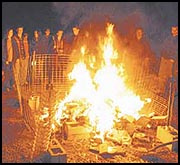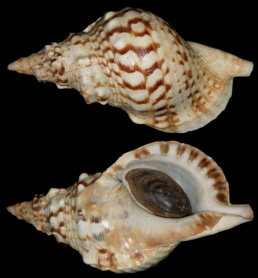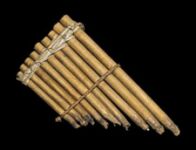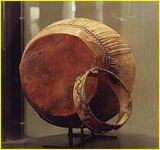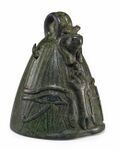West Phoenicia Music: Difference between revisions
No edit summary |
No edit summary |
||
| Line 220: | Line 220: | ||
[[Category:West Phoenicia]] | [[Category:West Phoenicia]] | ||
[[ | [[category:Music]] | ||
Revision as of 10:06, 12 May 2020
This article is incomplete because it is pending further input from participants, or it is a work-in-progress by one author. Please comment on this article's talk page to share your input, comments and questions. Note: To contribute to this article, you may need to seek help from the author(s) of this page. |
The Empire of West Phoenicia is passionate about music and literature. Both have been a part of their culture since the country came into existence.
Jazz, Southern Gospel, Bubble-Gum Pop, Classic Rock and Country are popular music genres.
Opera is a favourite among the upper classes. West Phoenicia boasts some of the most opulent Opera houses.
Rap and Heavy metal is banned in the Holy city-state of Agape by orders of Pontifex Angelika I who has deemed it the Devils music.
Since 2010 numerous city-states have followed suit with many cities and towns undergoing yearly burnings of rap music and heavy metal rock that has been found especially amongst the youth.
There are 10,000 West Phoenician Radio Stations; it includes 2500 AM stations, 4,000 commercial FM stations and 1500 educational/non-profit FM stations
The Empire of West Phoenicia has entered their talented music artists in international competitions around the world such as the World Vision Song Contests and the World Hit Festivals.
West Phoenicia hosts a number of their own Awards Nights and Galas to reward and promote talent in West Phoenicia.
History
Archaeologists predate music being a form of entertainment in the region for well over 4000 year old. Evidence discovered in Mermania cave artefacts, show couch shells as instruments and cave painting depicting music as a form of celebration.
As other ethnic groups migrated to the region other musical instruments were slowly introduced especially by the Babelite people.
The Babelite tribes introduced a host of musical instruments that were primarily used for wedding and funeral rites. Instruments such as drums, pan flutes, tambourines and bells became quite common at these events.
The priestly class used instruments such as the sistrum to communicate with the deities.
Award Shows
West Phoenicia hosts a number of Music award shows to reward the talents of its artists, they include;
- West Phoenicia Country Music Awards
- West Phoenicia Pop Awards
- Silver Cloud Opera Awards
- Music for the Soul Awards
- Indie Music Awards
- West Phoenicia Rock n Roll Awards
- The Siren Awards
- Goddess Meret Annual Music Festival
Contests
Over the years West Phoenicia has entered a number of International Music Contests.
World vision Song Contest and World Hits Festival are the two more popular contests West Phoenicia has entered.
World Vision Song Contests
WorldVision Song Contest #49
The Worldvision Song Contest #49th edition was held in Electrum. The Laxettes won the nomination to sing at this prestigious music event in the debut entry for West Phoenicia. The girl group sung their original song "Please Don't Take my Cigarettes" Out of 28 nations. The Laxettes finished in 26th place.
WorldVision Song Contest #50
The Empire of West Phoenicia officially entered the WorldVision Song Contest #50, that was held in Kaisen, Kalosia. Aquarius won the nomination to sing at the competition with their song Segregation:( Give me a reason to love you) Aquarius placed 27th out of 31 entries.
World Hit Festivals
World Hit Festival #26
West Phoenician male solo artist Hero registered for the 26th edition of the World Hit Festival when he won the national competition to represent West Phoenicia. World Hit Festival #26 was held in Monterra, Kalosia where he sung the song Fame or Me? West Phoenicia finished with a final rank of 7 out of 9.
World Hit Festival #27
West Phoenician Lady Gaia won selection to represent the nation in the 27th Edition of The World Hit Festival. The competiton took place in Kyvivre, Britonisea. Lady Gaia sung a beautiful folk song; Beloved Mother Earth. West Phoenicia finished with a placing of 12th.
World Hit Festival #28
West Phoenician popular girl group Bubblegum was choosen to represent the nation at the World Hit Festival #28, which was held in Vodiznad, Izmedu. The song they entered for the competition was Bubblegum Kisses. The results were dismal, placing 2nd last and forcing West Phoenicia to pull out of future competition due to accusations of vote rigging and favoritism.
West Phoenician musicians
West Phoenicia has an abundance of music talent across the Empire. Some well known musical artists include;
| Music Artist | Genre | City-State Origin |
|---|---|---|
| Holly Fartoni | Country | New Dixie |
| The Insects | 4 man rock n roll | New Tudor |
| Dixie Goodrem | Pop | Jackson |
| Jade Westwood | Opera | Upper West Phoenicia |
| Hero | Pop & Ballads | Jackson |
| Gene Campbell | Country and Western | Upper West Phoenicia |
| Magdalene | Pop | Olympia Hills |
| The Laxettes | Doo Wop & Pop | Fort Blackfoot |
| Aquarius | Pop | Lower West Phoenicia |
| Lady Gaia | Folk | Africana Territory |
| The Westexx Trio | Folk | St Mary's |
| Blaine Daniels | Folk | Nova Texas |
| 4 Privates | Pop, R&B, Patriot Ballads | Jackson |
| Bubblegum | Pop | Neo Australis |
| The Gidgettes | Surfer Rock & Pop | Deception Bay |
| Duncan Whitehall | Pop Rock, Swing, Jazz | Nova Texas |
| The Watermelons | Kids musical group, Pop | Upper West Phoenicia |
| The Rainbow Teddybears | Kids musical group, Pop | Jackson |
| Maralena Devine | Lounge Singer, Ballads, Jazz | Brigham Territory |
| Josef Puglia | Opera | New Tudor |
| Madame Sofia Le'Oranga | Opera | East Eden |
West Phoenician Music Deities
The West Phoenician Pantheon of deities can be quite extensive. The nation has a large percentage of citizens who follow the polytheist pantheon, paying homage to a variety of gods, goddesses and animal deities who overlook their daily life.
Music deities are no exception, from the prehistoric times in the region, the priestly class has seen music as a form of communication with the deities. They also pay thanks to those deities who inspired music to flourish in the region.
Pan
Pan is one of the earliest music deities found in West Phoenician folklore. His origin is traced back to Greek colonies that popped up in pre-West Phoenician times. Pan is responsible for rustic music and nature. Musician often say a prayer to Pan before a performance to receive his blessing.
Euterpe
Euterpe was a Greek muse of lyric poetry. She was introduced to the region by travelling ministels, bards and poets who were invited to perform in the royal court of the Imperium royal family in Greater Phoenicia in 1145 during the reign of Queen Delphina Imperium
Queen Dephina Imperium incorporated the muse as a minor goddess in the pantheon as part of a Greco-Phoenician syncretism Euterpe was given authority over wind instruments, lyrical music and poetry.

